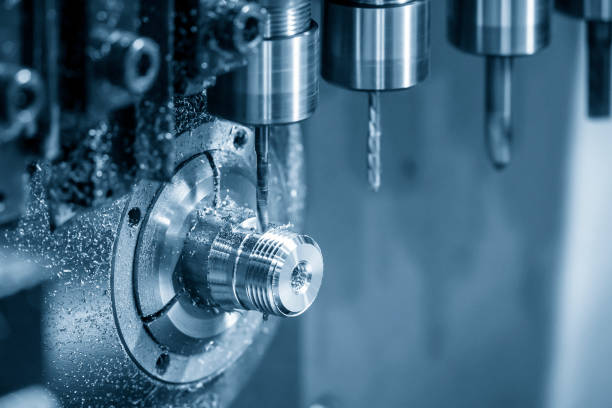Manufacturing Execution Systems’ Significant Role in Modern Production
In today’s fast-paced industrial world, Manufacturing Execution Systems (MES) have emerged as pivotal for ensuring efficient and streamlined manufacturing processes. These systems act as a bridge between the production floor and the management, optimizing operations and paving the way for higher productivity.
The adoption of Manufacturing Execution Systems is increasingly crucial for businesses to remain competitive and cater to the evolving demands of exporters and importers. MES not only helps in monitoring production but also plays a vital role in analyzing and improving the entire manufacturing workflow.

What Are Manufacturing Execution Systems?
At its core, a Manufacturing Execution System (MES) is a control system for managing and monitoring work-in-progress on the factory floor. This system provides information that helps manufacturing decision-makers understand how to optimize their production processes, ensuring that everything runs smoothly and efficiently.
Components of Manufacturing Execution Systems
An MES is made up of several key components including data collection and analysis, quality management, scheduling, and inventory tracking. By integrating these components, MES provides a comprehensive view of all aspects of production.
Benefits of Implementing Manufacturing Execution Systems
One of the primary benefits of Manufacturing Execution Systems is their ability to reduce production costs by improving operational efficiency. They enable real-time monitoring and control of production processes, helping businesses adapt quickly to any changes or disruptions.
Boosting Productivity
By automating data collection and reporting, MES reduces the time spent on manual processes, allowing for quicker and more accurate decisions. This leads to an increase in overall productivity and throughput.
Improving Quality Control
MES provides real-time data on production quality, helping businesses identify and correct defects early in the process. This leads to higher-quality products and a reduction in waste.
Challenges in Implementing Manufacturing Execution Systems
Despite the numerous benefits, implementing an MES can be challenging. One significant hurdle is the integration of MES with existing systems and processes. It requires careful planning and execution to ensure a smooth transition.
Overcoming Integration Issues
Businesses must work closely with MES providers to develop customized solutions that address specific needs and challenges. Proper training and support are crucial for successful implementation and uptake of MES systems.
Case Studies: Successful MES Implementation
Many companies have successfully implemented Manufacturing Execution Systems to enhance their production capabilities. For instance, a global electronics manufacturer was able to reduce its defect rates by over 20% within the first year of implementing an MES.
The Future of Manufacturing Execution Systems
The future of MES is bright, with advancements in AI and IoT promising to further enhance its capabilities. As these technologies become more integrated, MES will offer even greater efficiency and insight into the production process, driving the next wave of industrial innovation.
Integration with Smart Technologies
Optimizing production will increasingly rely on smart technology integration, creating more autonomous and responsive manufacturing environments. For instance, systems like [The Future of Global Supply Chains](https://blinternationalcompany.com/blog/the-future-of-global-supply-chains-how-smart-manufacturing-is-changing-the-game/) are already showing how smart manufacturing is reshaping industries.
Real-World Applications of MES
MES systems have been applied across various industries to streamline production. In the automotive industry, for example, they help synchronize complex assembly processes, ensuring efficient resource utilization and minimal downtime.
Electronics Manufacturing
In electronics, MES is crucial in managing the intricate tasks involved in producing complex components. For example, [Sustainable Electronics](https://blinternationalcompany.com/blog/sustainable-electronics-building-a-greener-future-in-manufacturing/) explores how MES contributes to eco-friendly production practices.
Pharmaceutical Industry Applications
MES also plays a vital role in ensuring compliance with stringent regulations in the pharmaceutical industry. By tracking every step of the manufacturing process, it helps maintain high standards of quality and safety.
Choosing the Right MES for Your Business
Selecting the right Manufacturing Execution System requires careful consideration of your business’s specific needs and existing systems. It’s important to evaluate the features and flexibility of the software to align with your production goals.
Customization and Flexibility
Look for an MES solution that offers customization options, allowing you to tailor it to your unique requirements. Consider consulting resources like [Custom Electronics Manufacturing](https://blinternationalcompany.com/blog/how-custom-electronics-manufacturing-is-driving-innovation-across-industries/) to understand how tailored solutions can drive innovation.
Scalability Considerations
Your chosen MES should be scalable, accommodating future changes in production volume and complexity. This ensures long-term viability and support for business growth.

Conclusion: The Importance of MES in Modern Manufacturing
The role of Manufacturing Execution Systems in modern manufacturing cannot be overstated. As industries continue to evolve, MES will remain a cornerstone of efficient production processes, driving growth and innovation worldwide.
FAQ: Understanding MES
What is the primary function of an MES?
An MES provides real-time data and control over manufacturing operations, helping improve efficiency and product quality.
How does MES contribute to quality control?
MES tracks production processes and defects, allowing for prompt identification and rectification of quality issues.
What industries benefit most from MES?
Industries like automotive, electronics, and pharmaceuticals benefit significantly from MES due to their complex production requirements.


